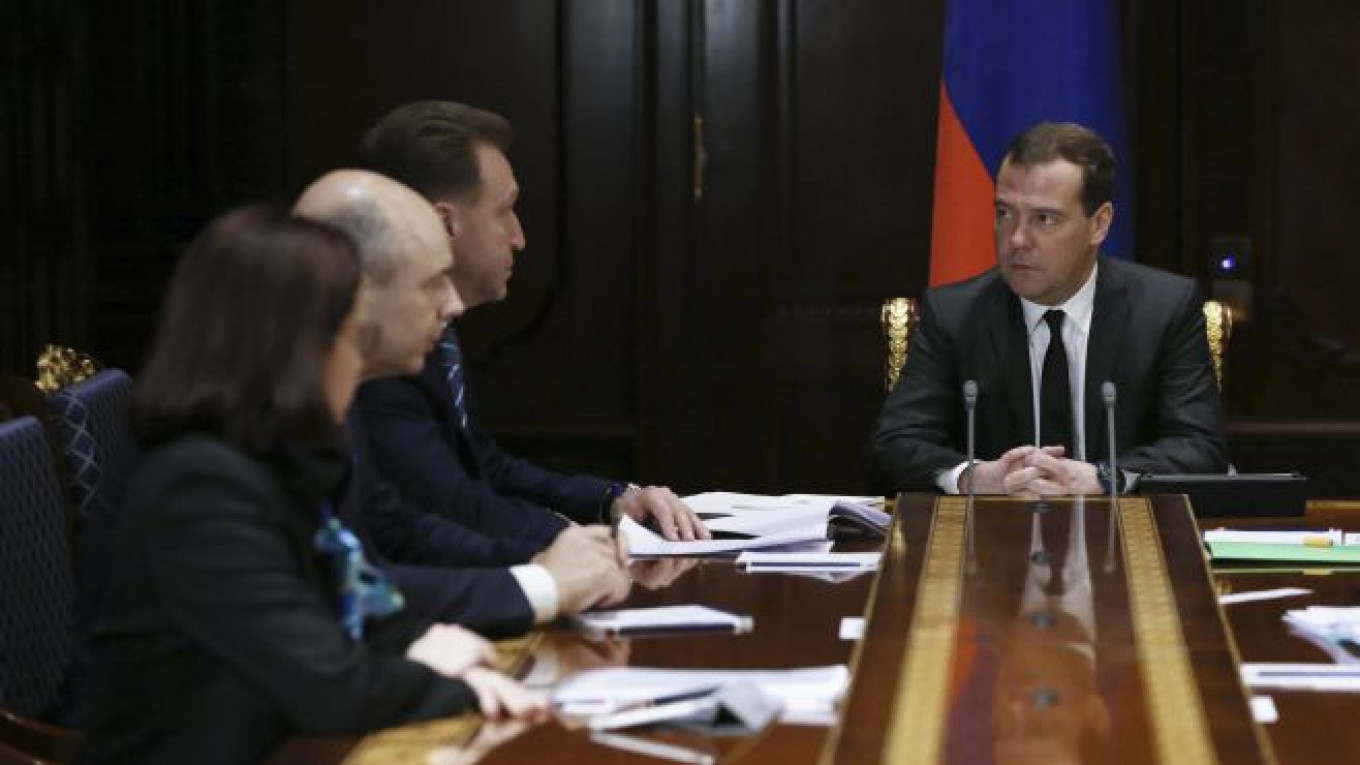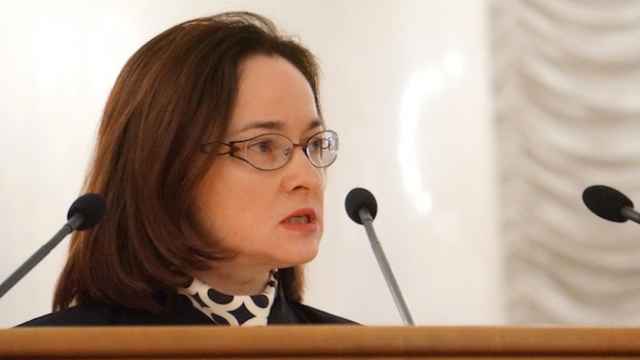Russia's Central Bank replaced its head of monetary policy on Wednesday, the first reshuffle since the bank failed to halt the ruble's sharp decline late last year.
A long-time Central Bank technocrat, Dmitry Tulin, will replace Ksenia Yudayeva who has been the focus for criticism over the defense of the rouble, which fell more than 40 percent last year, briefly hitting a record low of 80 to the dollar.
Dmitry Tulin, who has been working on-and-off at the bank since 1978, has been a deputy chairman there since 2004. He will become first deputy chairman in charge of monetary policy — effectively the number two to Central Bank governor, Elvira Nabiullina — the Central Bank said Wednesday.
Tulin, 58, is to take on his new responsibilities over the next few days.
Nabiullina was quoted as saying in the statement that the move was an organizational one to split the "goals of price and financial stability" into independent units.
"I want to emphasize that we are preserving both strategic and tactical guidance to monetary policy," Nabiullina said. "The very ideology of monetary policy will be a continuity of the way we worked in 2013 and 2014."
But analyst Tim Ash said the reshuffle suggested the Central Bank was not free to act without political guidance, saying Nabiullina, also criticized for Russia's monetary policy, had so far been saved from a predictable cull.
"I think therein is a clear message that the Central Bank was not entirely free in terms of its decision set late last year," Ash said in a note, referring to his belief the Kremlin had told the bank to keep reserves high to weather what Russian politicians expect to be a long standoff with the West over Ukraine.
U.S.-trained Yudayeva, who joined the bank in late 2013, will retain the title of a first deputy and will be responsible for financial stability, analysis and economic forecasting as well as the bank's international policy.
Several Russian lawmakers have criticized both Nabiullina and Yudayeva for letting the ruble plummet last year after floating the currency in November. Some called in December for their resignation.
President Vladimir Putin said in December the Central Bank should have acted more swiftly, but has largely backed the Central Bank's actions.
The ruble, hit by falling oil prices, Russia's main export, and Western sanctions imposed on Moscow for its role in the Ukraine crisis is trading 50 percent lower against the dollar than in early January of 2014.
On Wednesday, it stood at 66 rubles against the dollar
A Message from The Moscow Times:
Dear readers,
We are facing unprecedented challenges. Russia's Prosecutor General's Office has designated The Moscow Times as an "undesirable" organization, criminalizing our work and putting our staff at risk of prosecution. This follows our earlier unjust labeling as a "foreign agent."
These actions are direct attempts to silence independent journalism in Russia. The authorities claim our work "discredits the decisions of the Russian leadership." We see things differently: we strive to provide accurate, unbiased reporting on Russia.
We, the journalists of The Moscow Times, refuse to be silenced. But to continue our work, we need your help.
Your support, no matter how small, makes a world of difference. If you can, please support us monthly starting from just $2. It's quick to set up, and every contribution makes a significant impact.
By supporting The Moscow Times, you're defending open, independent journalism in the face of repression. Thank you for standing with us.
Remind me later.






